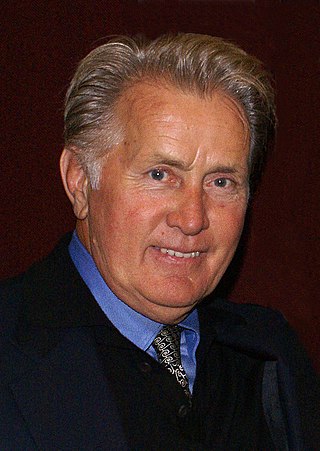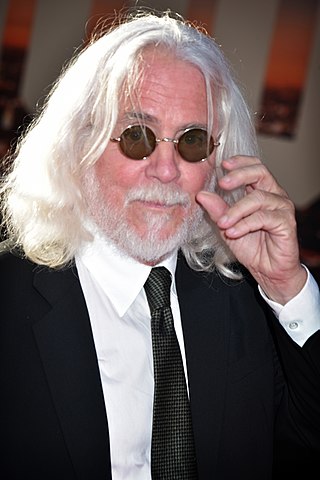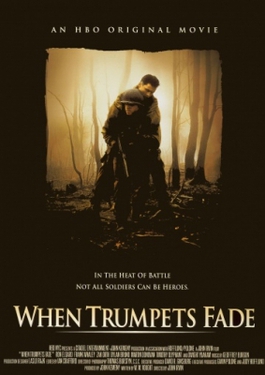
John Thomas Sayles is an American independent film director, screenwriter, editor, actor, and novelist. He is known for writing and directing the films The Brother from Another Planet (1984), Matewan (1987), Eight Men Out (1988), Passion Fish (1992), The Secret of Roan Inish (1994), Lone Star (1996), and Men with Guns (1997).

Ramón Antonio Gerardo Estévez, known professionally as Martin Sheen, is an American actor. In a career spanning six decades he received numerous accolades including three Emmy Awards, a Golden Globe Award, and four Screen Actors Guild Awards.

Platoon is a 1986 American war film written and directed by Oliver Stone, starring Tom Berenger, Willem Dafoe, Charlie Sheen, Keith David, Kevin Dillon, John C. McGinley, Forest Whitaker, and Johnny Depp. It is the first film of a trilogy of Vietnam War films directed by Stone, followed by Born on the Fourth of July (1989) and Heaven & Earth (1993). The film, based on Stone's experience from the war, follows a new U.S. Army volunteer (Sheen) serving in Vietnam while his Platoon Sergeant and his Squad Leader argue over the morality in the platoon and of the war itself.

Science fiction is a film genre that uses speculative, fictional science-based depictions of phenomena that are not fully accepted by mainstream science, such as extraterrestrial lifeforms, spacecraft, robots, cyborgs, mutants, interstellar travel, time travel, or other technologies. Science fiction films have often been used to focus on political or social issues, and to explore philosophical issues like the human condition.

Cross of Iron is a 1977 war film directed by Sam Peckinpah, featuring James Coburn, Maximilian Schell, James Mason and David Warner. Set on the Eastern Front in World War II during the Soviets' Caucasus operations against the German Kuban bridgehead on the Taman Peninsula in late 1943, the film focuses on the class conflict between a newly arrived, aristocratic Prussian officer who covets winning the Iron Cross and a cynical, battle-hardened infantry NCO.

The Brécourt Manor Assault during the U.S. parachute assault of the Normandy Invasion of World War II is often cited as a classic example of small-unit tactics and leadership in overcoming a larger enemy force.

Robert Bridge Richardson, ASC is an American cinematographer. Known for his trademark aggressively bright highlight as well as shapeshifting style, he is one of three living persons who has won the Academy Award for Best Cinematography three times, the others being Vittorio Storaro and Emmanuel Lubezki. He has frequently collaborated with Oliver Stone, Quentin Tarantino, and Martin Scorsese.

When Trumpets Fade is a 1998 HBO television movie directed by John Irvin and starring Ron Eldard, Frank Whaley, Zak Orth, and Dylan Bruno. First released on June 27, 1998, the film is set in World War II during the Battle of the Hürtgen Forest.
The Political Film Society Award for democracy is given out each year to a film that promotes, educates, and raises the awareness level of the public in the specific areas of democracy and freedom. This award has been handed out by the Society since 1988. Depending on the number of movies that qualify, sometimes only one film is nominated for this award, but as many as seven have been nominated in years past.

Marco Beltrami is an American composer, conductor, and pianist, best known for his film and television scores. Beltrami has worked in a number of genres, including horror, action, science fiction, Western, and superhero.

Private Frank Pike is a fictional Home Guard private and junior bank clerk, first portrayed by actor Ian Lavender in the BBC television sitcom Dad's Army. He was appointed as the platoon's information officer by Captain Mainwaring in "The Man and the Hour". He is frequently referred to by Captain Mainwaring as "stupid boy".

Private Charles Godfrey MM is a fictional Home Guard soldier, first portrayed by Arnold Ridley in the British television sitcom Dad's Army. He is retired and was previously a tailor for the Civil Service Stores or the Army & Navy Stores. Godfrey was a conscientious objector during the First World War, yet he did work as a stretcher bearer with the Royal Army Medical Corps and earned a Military Medal for taking the wounded off the battle field at the Battle of the Somme. This has earned him great respect among the platoon members and resulted in him being appointed as the First Aid supervisor. Ridley himself fought at the Battle of the Somme during the First World War.

All Quiet on the Western Front is a 1930 American pre-Code epic anti-war film based on the 1929 novel of the same name by German novelist Erich Maria Remarque. Directed by Lewis Milestone, it stars Lew Ayres, Louis Wolheim, John Wray, Arnold Lucy, and Ben Alexander.
The Political Film Society Award for exposé is given out each year to a film that has an investigative depth into a subject matter and often exposes surprising information on the subject. This award has been handed out by the Society since 1988. Depending on the number of films that qualify, as few as one films has been nominated for this award before but as many as fourteen have been nominated in years past.
The Political Film Society Award for human rights is given out each year to a film that deals with struggle for human rights in both fictional and non-fictional stories. This award has been handed out by the Society since 1987. Depending on the number of films that qualify, as few as one film has been nominated for this award before but as many as fourteen have been nominated in years past.
"We Know Our Onions" is the fourth episode of the sixth series of the British comedy series Dad's Army. It was originally transmitted on 21 November 1973.
The following is a list of the Top 10 Films chosen annually by the National Board of Review of Motion Pictures, beginning in 1929.
Indiewood films are made outside of the Hollywood studio system or traditional arthouse/independent filmmaking system yet managed to be produced, financed and distributed by the two with varying degrees of success and/or failure.
Every year since its inception, the Japanese Academy has awarded the Japan Academy Film Prize for Outstanding Foreign Language Film. The year that any given film is nominated is not based on the film's domestic release date but rather on the date it is released in Japan. As delays of over four months are not uncommon, many films are nominated in Japan the following year after their release to the Japanese market. In fact, not one of the five films nominated for the 2007 Academy Award for Best Picture had been released in Japan by February 15, 2008, the date of the Japan Academy Prize Ceremony.










